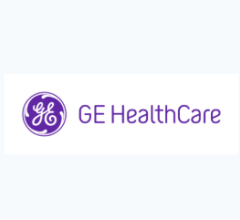February 13, 2008 - Liver cancer specialists at Jefferson's Kimmel Cancer Center in Philadelphia are beginning an 18-month study of a new therapy for liver cancer that entails injecting tiny beads that emit small amounts of radiation into the liver's main artery while also blocking the blood supply feeding the cancer's growth.
The technique, called radioembolization, has been approved by the federal FDA for use in inoperable liver cancer. According to the hospital, this is the first time that the technology, called SIR-Spheres microspheres, which is FDA-approved for treating colon cancer that has spread to the liver, is being studied in patients with hepatocellular carcinoma, or primary liver cancer (cancer that originates in the liver). The trial, which is led by Brian Carr, M.D., FRCP, Ph.D., professor of Medical Oncology at Jefferson Medical College of Thomas Jefferson University, includes patients from the University of Texas' M.D. Anderson Cancer Center in Houston and the University of Pittsburgh.
According to Dr. Carr, who is chief of the liver tumor program at the Kimmel Cancer Center and Thomas Jefferson University Hospital, the technique uses approximately 30-times more beads than other types or radioembolization. The teams plan to enroll 10 patients initially, and perhaps as many as 40 altogether.
"No one knows if radioembolization will be better than just radiation, even though there are theoretical grounds for it," Dr. Carr said.
In the form of radioembolization being tested, millions of tiny beads or "microspheres" containing the radioactive isotope Yttrium-90 are injected through a catheter directly into the liver's hepatic artery, which also supplies blood to tumors. The microspheres, in addition to blocking blood flow to the tumor, emit targeted radiation directly to the cancer, sparing healthy tissue.
Dr. Carr and his colleagues are encouraged by results from a recent clinical trial showing the effectiveness of a similar technique against advanced liver cancer. Reporting recently in the journal Hepatology, Dr. Carr and physicians at Northwestern University in Chicago found that injecting another type of Yttrium-90-containing beads (TheraSphere) was effective in treating inoperable liver cancer even in patients whose portal vein was blocked by tumor. The treatment, he said, was as good as or better than using the current standard called chemoembolization, which involves directly injecting chemotherapy drugs into the liver through the hepatic artery. Because it involves dangerous, cell-killing drugs, he noted, doctors have sought liver cancer treatments that have fewer toxic effects.
The treatment doesn't cure the cancer, but has been shown to often shrink tumors and help patients live longer, said Dr. Carr. It can also be used for patients who have previously failed chemotherapy.
For more information: www.jeffersonhospital.org


 January 30, 2026
January 30, 2026 









